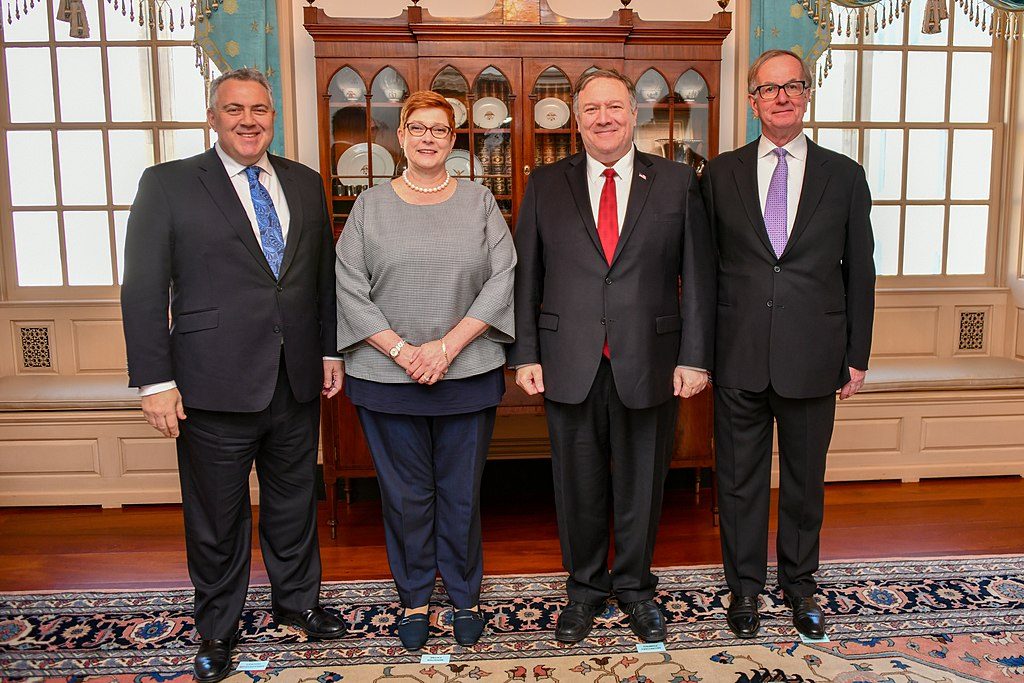FRESH AIR
Greens foreign policy would make Australia less safe
May 17, 2019 | Naomi Levin

Climate change is the biggest threat to our future, according to the Greens. They may be right, but surely there are other threats too – global terrorism, rogue states, nuclear weapons. If elected to a position of influence, the Greens’ foreign policy would put Australians at greater risk when facing these threats.
Among the Greens foreign policies is a proposal to scrap the Five Eyes intelligence agreement.
Established after World War II, the Five Eyes arrangement allows Australia to share and receive vital intelligence from the United States, United Kingdom, Canada and New Zealand. It has been highly valued by Labor and Liberal governments.
Being an intelligence arrangement details are secretive, but academics and political leaders have all emphasised the necessity of Five Eyes in keeping Australia and our near region safe.
Former Australian prime minister John Howard said the Five Eyes arrangement “is of priceless value when it comes to dealing with intelligence”.
Howard continued: “There is nothing more important, in dealing with the terrorist threat in whatever form it takes, than timely intelligence”.
We know that in recent months, Five Eyes has focussed on the essential task of countering Chinese foreign influence, a known potential threat to Australian security, but also commerce and society.
Why then, does Greens leader Richard Di Natale advocate Australia’s withdrawal from Five Eyes?
In July 2018, Senator Di Natale said Australia needs to rethink its alliance with the US – a long time Greens trope – but went on: “that means withdrawing from the Five Eyes agreement that keeps us tethered to Washington come what may”. Rather than seeing Five Eyes as a “tether”, collaborating on intelligence matters ensures local law enforcement can better protect Australians.
This flawed foreign policy is among a long list of measures that, if allowed to influence a future government, would seriously diminish Australian security preparedness.
The Australian Greens’ foreign policy is a grab-bag of fluffy aspirations that have little grounding in reality. They deserve scrutiny though.
US alliance – Where the Australian Labor Party and Liberal/National Coalition both agree that Australia’s alliance with the United States is the cornerstone of Australia’s international relations, the Greens’ maintain vocal US-scepticism. This has only increased with the election of President Donald Trump. During the early months of 2019, both the Coalition and Labor have re-emphasised the primacy and importance of the US alliance regardless of leader. In summary, the modern Australia-US alliance is strategically essential for a smaller country like Australia that faces global challenges, ranging from cyber-security to a rising China, in the 21st century.
Use of military power – Where both major political parties have agreed with the need to project Australian military power from time-to-time when it can contribute to the greater good, the Greens reject any form of military force. In the Greens’ 85-page election policy document, foreign policy is barely mentioned. On page 75 though, the Greens’ summarise their approach: “unquestioning support for the US and more machines of war is not the right path”.
In the context of their opposition to any forms of military force, the Greens opposed air strikes by the US, UK and French to help some of the world’s most helpless people, Syrian civilians who had just been attacked with chemical weapons by their own government.
The Greens rationale is that peace talks would be more effective than retaliatory military action. This sounds admirable, but, in practice, is a deadly approach guaranteed to extend the suffering of the most vulnerable Syrians. It completely ignores the real politic of the situation where you have a dictator desperate to hold onto power with no regard for peace.
Defence exports – In line with its pacificist approach to solving the world’s deadliest conflicts, the Greens also believe Australia’s defence trade should be stopped. The Greens would do this by abolishing the main mechanism that allows Australian defence manufacturers to export their products overseas. Again, their rationale seems reasonable: to prevent rogue states accessing Australian weapons. However in reality, Australian defence exports are already highly regulated to ensure locally-made weapons do not end up in enemy hands. The Greens also completely fail to acknowledge the global security reality. There is no viable international legal order that ensures all states behave appropriately and until all states agree to demilitarise, there is little value in Australia going it alone.
Senator Di Natale and former Greens senator Scott Ludlam have both called for an end to all military trade with Israel. This is despite Israel being an Australian ally; a democracy with a strong rule of law; and located in one of the most volatile regions in the world with a variety of threats at its border.
This is, of course, part of a wider pattern of a very negative focus on Israel as a foreign policy issue among the Australian Greens, as documented by AIJAC previously here, here and here.
As the Lowy Institute’s Malcolm Jorgensen wrote in a critique of Senator Di Natale’s key foreign policy speech in the lead up to the 2016 election: “Foreign policy making is more often a process of negotiating least-worst outcomes that preserve core Australian interests while accepting sometimes far-reaching compromise on others.” The Greens foreign policy is a dangerous mix of idealism and over-reach that would do nothing to protect the security of Australians, the fundamental purpose of government.
Tags: Five Eyes, Greens, Israel, Richard Di Natale, United States
RELATED ARTICLES

Enormous hope that Iran is being liberated: Colin Rubenstein on Sky News

He survived Bondi. Now he’s fighting back: Arsen Ostrovsky addresses AIPAC conference





















